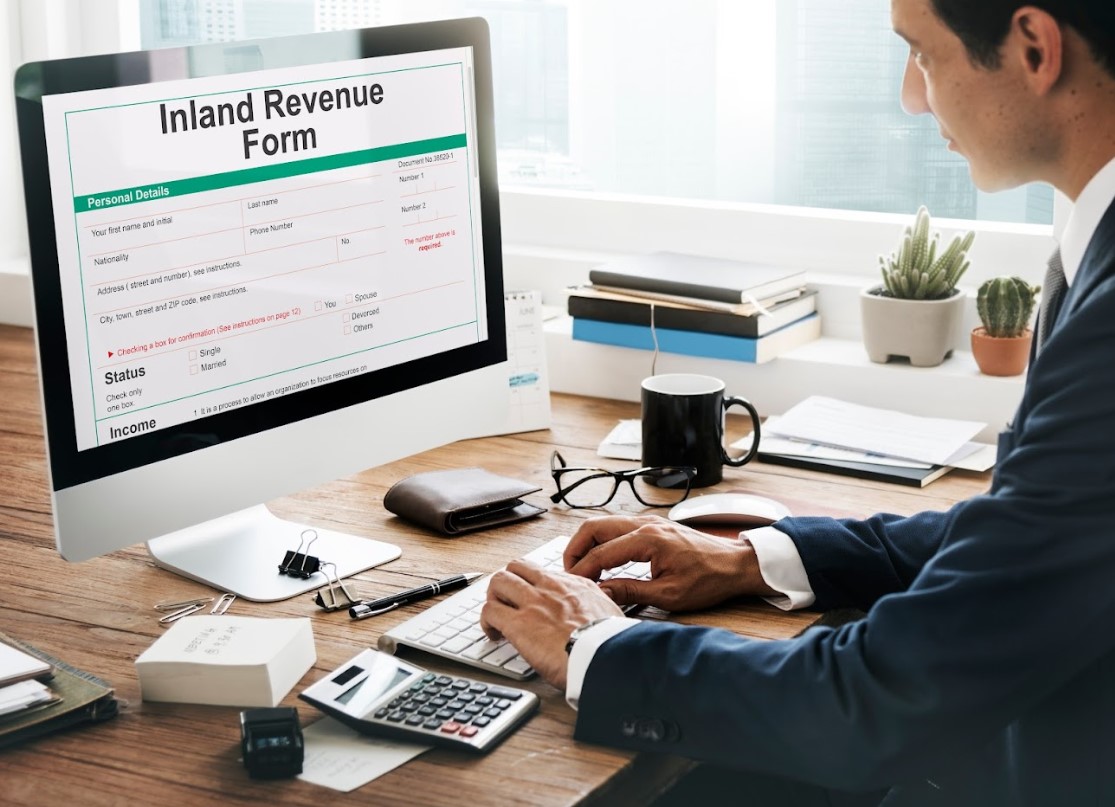
Singapore 2023 Budget Highlights
Written by Sonia Goh, Sandy Quek and Beverly Hie
Budget 2023 provides robust support to businesses in Singapore to navigate through the challenging economic environment and global economic uncertainty. With people being our only natural resource, the government continues to provide impetus to employers to continue to upskill workers through topping up the National Productivity Fund to S$4 billion. Further, Enterprise Innovation Scheme is launched to encourage businesses to press on with innovation so that Singapore remains globally competitive.
It is heartening that the Budget ensures that lower wage workers are not left behind in these difficult times as the government continues to co-fund wage increases of these workers through the Progressive Wage Credit Scheme (PWCS) and will top-up PWCS by S$2.4 billion.
Additionally, welfare of Platform Workers in the areas of housing and retirement are being strengthened through CPF contributions. These measures would likely uplift the wages of the lower income workers.
The Budget was generous to the Singapore family with help given to first-timer applicants for flats, increments in housing grants, baby bonus cash gift, additional contributions to the child development account amongst other measures.
“It is heartening that the Budget ensures that lower wage workers are not left behind in these difficult times”
In the next section of this commentary, we will discuss the ten announcements in the Budget, that impact businesses and corporate taxes. In Singapore.
BUSINESSES
-
Enterprise Innovation Scheme (EIS)
With effect from the Year of Assessment (YA) 2024 to YA 2028, the new scheme provides businesses 400% tax deductions on qualifying expenditure incurred on:
- Staff costs and consumables incurred on R&D conducted in Singapore
- Registration of qualifying Intellectual Property (IP) including patents, trademarks and designs
- Acquisition and licensing of qualifying IP rights (available to businesses that generate below $$500 million in revenue in relevant YA)
- Training via courses approved by SkillsFuture Singapore which are aligned to the Skills Framework
- Innovation projects carried out with polytechnics, the Institute of Technical Education (ITE) and other qualified partners
The expenditure on each activity will be capped at $400,000, except for item 5, which will be capped at S$50,000. Eligible businesses can opt for a non-taxable cash payout in lieu of tax deductions/allowances (capped at 5$20,000), based on a conversion ratio of 20% on up to $$100,000 of total qualifying expenditure across all qualifying activities in (1) to (5) per YA.
In line with the above enhancements, the sunset dates for the following will be extended to YA 2028:
- Section 14A (deduction for costs of protecting IP)
- Section 14C (deduction for qualifying expenditure on R&D)
- Section 14D (enhanced deduction for qualifying expenditure on R&D)
- Section 14U (enhanced deduction for expenditure on licensing IP rights)
- Section 19B (Writing-down allowance for capital expenditure on acquiring IP rights)
The Inland Revenue Authority of Singapore (“IRAS”) will provide further details on the scheme by 30 June 2023.
-
Double Tax Deduction for Internationalisation (DTDi) Scheme
The DTDi scheme will be enhanced by the addition of a new qualifying activity – “e-commerce campaign”.
This will cover startup expenses such as business advisory, account creation, content creation and product listing and placement incurred on or after 15 February 2023. Enterprise Singapore will provide further details by 28 February 2023.
Businesses have to seek approval from Enterprise Singapore for DTDi support on this new qualifying activity which will be granted for one year and on a per-country basis.
*Please refer here for a full list of qualifying activities and expenditure available for DTDi.
-
Option to Accelerate the Write-off of the Cost of Plant and Machinery (P&M)
Businesses that incur qualifying expenditure on P&M in the YA 2024 have an option to claim accelerated capital allowances over two years (i.e. 75% in YA 2024 and 25% in YA 2025).
Deferment of capital allowance is not allowed once this option is elected. This option, if exercised, is irrevocable.
-
Option to Accelerate Deduction for Renovation and Refurbishment (R&R)
Businesses that incur qualifying expenditure on R&R in the YA 2024 have an option to claim R&R deduction in one YA. This option, if exercised, is irrevocable.
The cap of S$300,000 for every three relevant consecutive YAs will continue to apply.
-
Tax measures relating to Submarine Cable Systems
The existing tax measures relating to submarine cable system which are scheduled to lapse after 31 December 2023 will be extended till 31 December 2028, with the same parameters: –
- Withholding tax exemption on payments made to non-residents for use of international telecommunications submarine cable capacity under indefeasible right to use (IRU) agreements;
- Claiming of writing down allowances for the acquisition of an IRU over their useful life; and
- Claiming of investment allowance for the construction and operation of submarine cable systems in Singapore.
-
Tax Deduction for Qualifying Donations to Institutions of a Public Character (IPCs) and Eligible Institutions
250% tax deduction on qualifying donations made to IPCs and eligible institutions will be extended to 31 December 2026.
All other conditions of the scheme will remain the same.
-
Tax Deduction under Corporate Volunteer Scheme (CVS)
250% tax deduction on qualifying expenditure under CVS (previously Business and IPC Partnership Scheme) will be extended to 31 December 2026 with the following enhancements to take effect from 1 January 2024:
-
- Qualifying volunteering activities will be expanded to include activities which are conducted virtually (e.g. online mentoring and tuition support for youths/children) or outside of the IPCs’ premises (e.g. refurbishment of rental flats).
- Cap on qualifying expenditure per IPC will be doubled from S$50,000 to S$100,000 per calendar year.
All other conditions of the scheme will remain the same.
-
-
Philanthropy Tax Incentive Scheme for Family Offices
A new tax incentive scheme will be introduced for qualifying donors* with Family Offices operating in Singapore, which allows 100% tax deduction for overseas donations made through qualifying local intermediaries, capped at 40% of the donor’s statutory income.
The Monetary Authority of Singapore (“MAS”) will provide more details by 30 June 2023.
*Donors must have a fund under MAS’ Section 13O or Section 13U Schemes and meet eligibility conditions, such as incremental business spending of S$200,000.
-
Investment Allowance Scheme (IA), Pioneer Certificate Incentive (PC), Development and Expansion Incentive (DEI), IP Development Incentive (IDI)
The above schemes/incentives which are scheduled to lapse after 31 December 2023 will be extended till 31 December 2028.
-
Implement Global Anti-Base Erosion and Domestic Top-Up Tax (“DTT”)
Singapore plans to implement GloBE rules and DTT with effect 2025. The DTT will top up the multinational enterprise groups’ effective tax rate in Singapore to 15%.
Singapore will continue to monitor international developments and adjust the implementation timeline for the implementation of GloBE and DTT accordingly.
INDIVIDUALS
-
Increase in the Central Provident Fund (CPF) monthly salary ceiling
CPF monthly salary ceiling will be raised from S$6,000 to S$8,000 by year 2026 for all employees in 4 phases as follows: –
CPF monthly salary ceiling
CPF annual salary ceiling
S$
S$
Current
6,000
102,000
(no change)
From 1 September 2023
6,300 (+300)
From 1 January 2024
6,800 (+500)
From 1 January 2025
7,400 (+600)
From 1 January 2026
8,000 (+600)
-
Working Mother Child Relief (WMCR)
With effect from YA 2025, the WMCR amount for a qualifying child who is a Singapore citizen born or adopted after 1 January 2024 will be changed from a percentage of the mother’s annual earned income to a fixed dollar relief, as follows (subject to personal income tax relief cap of S$80,000):
Child Order
WMCR Amount (S$)
For a qualifying Singapore citizen child born or adopted on or after 1 January 2024
1st
8,000
2nd
10,000
3rd and beyond
12,000
The WMCR amount for qualifying children born or adopted before 1 January 2024 will remain unchanged.
Further details can be found at www.go.gov.sg/wmcr.
-
Grandparent Caregiver Relief (GCR)
With effect from YA 2024, GCR is allowable to working mothers as long as the caregiver does not derive trade, business, profession, vocation or/and employment income exceeding S$4,000 in the year preceding the YA of claim, subject to all other existing conditions being met.
-
Foreign Domestic Worker Levy Relief (FDWLR)
The FDWLR will lapse for all taxpayers with effect from YA 2025.
The Singapore government has also announced tweaks and remedies to existing schemes and new announcements to soften the impact for certain categories of Singaporean employees. These announcements are summarised below:-
MISCELLANEOUS
-
Progressive Wage Credit Scheme (PWCS)
PWCS will be enhanced by increasing the Government’s co-funding share from 50% to 75% for employees with gross monthly wages of up to S$2,500, and 30% to 45% for employees with gross monthly wages more than S$2,500 and up to S$3,000, for the qualifying year 2023.
-
Senior Employment Credit (SEC)
SEC will be extended from 2023 to 2025 to support employers in hiring senior workers.
-
CPF Transition Offset (CTO)
CTO will be provided to employers to alleviate the rise in business cost due to the increase in senior workers’ CPF contribution rates in 2024. The offset provided will be equivalent to half of the 2024 increase in employer CPF contribution rates for senior workers.
-
Enabling Employment Credit (EEC)
EEC will be enhanced to cover a larger proportion of wages and a longer duration for persons with disabilities (PwDs) who have not been working for at least six months. Further details will be released by the relevant authority in due course.
-
Tax Changes for vehicles
- Additional Registration Fee (ARF) based on the Open Market Value for cars, taxis and goods-cum-passenger vehicles is revised as follows:
Open Market Value (OMV)
Revised ARF rates
First S$20,000
100% of OMV
Next S$20,000
140% of OMV
Next S$20,000
190% of OMV
Next S$20,000
250% of OMV
In excess of S$80,000
320% of OMV
The revised ARF rates will apply to all new and imported used cars and goods-cum-passenger vehicles registered with Certificates of Entitlements (COEs) obtained from the second COE bidding exercise in February 2023 onwards.
For vehicles that do not need to bid for COEs (e.g. taxis and classic cars), the revised ARF rates will apply for those registered on or after 15 February 2023.
- Preferential Additional Registration Fee (PARF) Rebate Cap
PARF rebates will be capped at S$60,000. This is applicable for cars that are registered with COEs obtained from the second bidding exercise in February 2023 onwards and are subsequently deregistered within their PARF eligibility period.
For vehicles that do not need to bid for COEs (e.g. taxis), the PARF rebate cap is effective for registration made on or after 15 February 2023 and are subsequently deregistered within their PARF eligibility period.
- Additional Registration Fee (ARF) based on the Open Market Value for cars, taxis and goods-cum-passenger vehicles is revised as follows:
-
Buyer’s Stamp Duty (BSD)
Marginal BSD rates will be revised for both higher-value residential and non-residential properties acquired on or after 15 February 2023.
If you wish to understand further how Budget 2023 affects you and your business in Singapore. Reach out and speak to our Tax Advisers team in Ledgen Singapore today.
CONTACT US
https://ledgengroup.com/en/contact-us/
enquiry@ledgengroup.com
Get in touch and discover how we can help
Got a question or inquiry? Come talk to us today.
Contact Us



